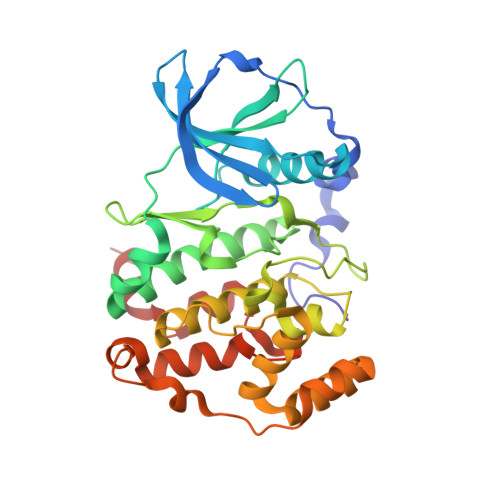Protein kinase CK2 inhibition is associated with the destabilization of HIF-1 alpha in human cancer cells.
Guerra, B., Rasmussen, T.D., Schnitzler, A., Jensen, H.H., Boldyreff, B.S., Miyata, Y., Marcussen, N., Niefind, K., Issinger, O.G.(2015) Cancer Lett 356: 751-761
- PubMed: 25449433
- DOI: https://doi.org/10.1016/j.canlet.2014.10.026
- Primary Citation of Related Structures:
4RLK, 4RLL - PubMed Abstract:
Screening for protein kinase CK2 inhibitors of the structural diversity compound library (DTP NCI/NIH) led to the discovery of 4-[(E)-(fluoren-9-ylidenehydrazinylidene)-methyl]benzoic acid (E9). E9 induces apoptotic cell death in various cancer cell lines and upon hypoxia, the compound suppresses CK2-catalyzed HSP90/Cdc37 phosphorylation and induces HIF-1¦Á degradation. Furthermore, E9 exerts a strong anti-tumour activity by inducing necrosis in murine xenograft models underlining its potential to be used for cancer treatment in future clinical studies. Crystal structure analysis of human and maize CK2¦Á in complex with E9 reveals unique binding properties of the inhibitor to the enzyme, accounting for its affinity and selectivity.
Organizational Affiliation:
Biomedical Research Group, BMB, University of Southern Denmark, Odense, Denmark.



















